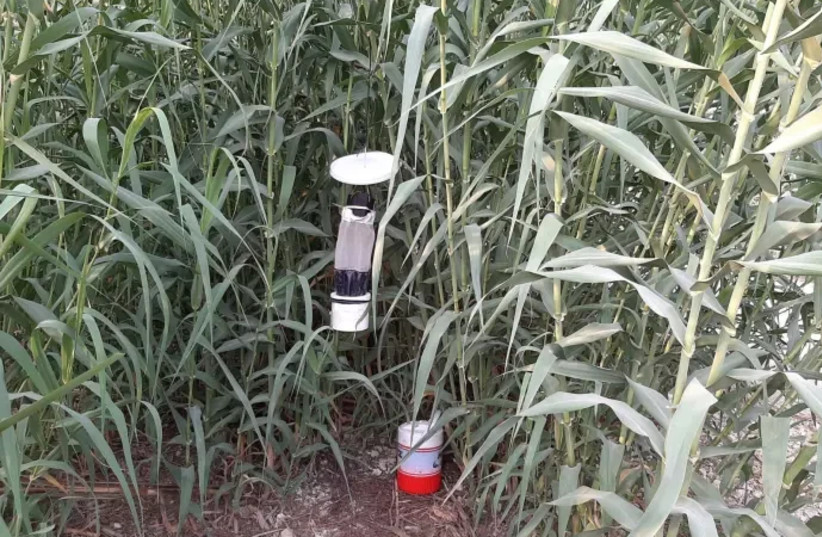In an interview Tuesday on Yoav Mintz's 104.5 FM program, Dr. Hamza Habib Allah, Senior Coordinator for Pest Control at the Environmental Protection Ministry, discussed the discovery this past year of mosquitoes infected with the West Nile virus, explaining how dangerous they are.
“It is serious at such a level that people can be infected by them,” Allah said. “We discovered the ones that were found in Nahal Naaman, Keri Naaman and Ein Afek in the Mata Asher Regional Council area.
"This is a very unusual time since there are many mosquitoes around, and after what we discovered in Eilat three weeks ago, it was expected that we would find them in the North since the disease is transmitted by birds that migrate from place to place. We increased the supervision in all mosquito breeding centers throughout the northern region and discovered those in the Meta Asher area," he said.
“This disease, which comes from poultry, has no vaccine for humans,” Allah said. “For healthy humans with a strong immune system, it should not cause severe complications and passes as a mild disease with weakness and muscle pain. But for older people and people with underlying diseases, the disease can cause meningitis and even death. There have been such cases.”

Minimizing risks
“Our goal is to prevent the dangers of mosquitoes and to stop centers that may have the potential for the development of the disease.”
Dr. Hamza Habib Allah, Senior Coordinator for Pest Control, Environmental Protection Ministry
“In the last 10 years there have been many cases of West Nile fever," he said. "This year, one person died and two more people are now hospitalized with this disease. Therefore, our goal is to prevent the dangers of mosquitoes and to stop centers that may have the potential for the development of the disease.
"The Environmental Protection Ministry and I with my team in the North are working to monitor areas that may be breeding grounds for mosquitoes. In addition, the ministry is operating under the supervision of the local authorities in the areas where the breeding sites were discovered," Allah said.
“We are not afraid, the teams know the biology of the disease and know when to be in the field and when not to be,” he said. “We are talking about mosquitoes that can only bite at night. Our experience during the day is with zero cases. There are cases of other mosquitoes that may bite during the day. The public should take care to dry stagnant water sources.”
